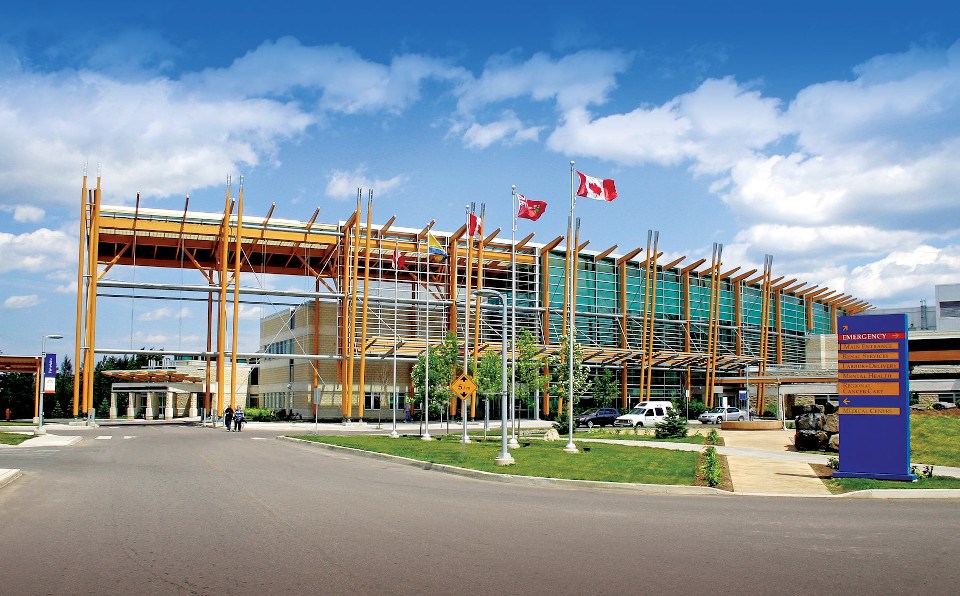THUNDER BAY — A provincial arbitrator has found that Thunder Bay Regional Health Sciences Centre acted appropriately in imposing travel restrictions on its staff because of the COVID-19 pandemic.
Christopher White has dismissed grievances filed against the hospital by the Ontario Nurses Association.
In October 2020, staff were informed that any non-essential travel within Canada but outside Northern Ontario – defined as Parry Sound to the Manitoba border, and later changed to Northwestern Ontario, defined as Manitouwouadge to the Manitoba border – would result in a failed entrance screening, and that they would then be required to self-isolate and monitor for symptoms for seven days.
Staff would not be compensated by the hospital for the isolation period, but there was a provision for accommodations such as rapid COVID-19 testing for staff essential to patient care, use of vacation time, and remote work options.
Exceptions were available for essential travel by locums (doctors brought in on temporary assignment) or for flight transfers of patients.
The policy also required any staff planning to travel outside Northern Ontario to complete a travel form and review it with their manager
If an employee had existing approved vacation that didn't include the required isolation period, a manager would determine if it was operationally feasible to approve the additional time off for isolation.
If so, the employee was to request an unpaid leave of absence, but could use banked time or a vacation payout to compensate for unpaid time off.
If not, the employee would have to revise or cancel travel plans to ensure a return to work as scheduled.
Staff who decided to cancel their travel plans could request to cancel their previously approved vacation.
The Ontario Nurses Association (ONA) filed grievances alleging that the hospital had violated the collective agreement with "an unreasonable policy directing members to self-isolate by arbitrarily declaring travel boundaries," by requiring nurses to self-isolate during pre-approved vacation, and by requiring approval of travel plans.
Hospital said it was exercising its rights under the circumstances
In December, TBRHSC denied the grievances, saying, "It is the hospital's position that if an employee elects to travel outside of our region while the hospital and the Thunder Bay District Health Unit require a self-isolation period upon return from such travel, it is within our management rights to require the employee to request the self-isolation period as part of their time-off request."
The hospital added "These measures are not in place to prohibit individuals from travel, rather to ensure adequate staffing levels can be met by granting such time off and the safety of our staff, patients and the community."
When the issue went before the arbitrator, TBRHSC argued that it was legally required to comply with the advice, recommendations and instructions issued by the Office of the Chief Medical Officer of Health.
It cited the Thunder Bay District Health Unit's recommendations that all residents avoid non-essential travel outside the region, and said the hospital's compliance was mandatory under provincial legislation.
However, the ONA argued that the TBDHU had only issued recommendations for individuals, not for employers, and that there was no suggestion there was an outright prohibition on travel outside the region,
It maintained that the hospital, on its own initiative, proceeded to develop a travel policy that was "incredibly broad and enforced standards that even the Thunder Bay District Health Unit did not envision."
The nurses association also submitted that the provincial regulations applying to employers are only in respect of their operations within the workplace.
"Accordingly, the employer's [TBRHSC's] policies applying as they do to the activities of employees outside the workplace constitute an action that is not mandated by statute."
The hospital responded that accepting the union's argument would lead to "the illogical result that the health unit's recommendations applied to every individual within its jurisdiction other than those who were most important to the public health care system in the Thunder Bay district."
White accepted the hospital's point, saying it "defies logic" to suggest that the health unit did not intend its recommendations to apply to organizations such as hospitals.
He added that it's important to recognize that the TBDHU did contemplate that employers might create their own policies regarding non-essential travel consistent with its recommendations for individuals.
Neither the hospital nor the ONA responded to a request for comment on the arbitrator's decision.
